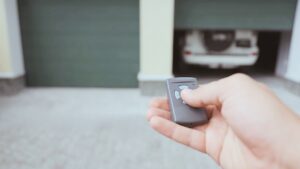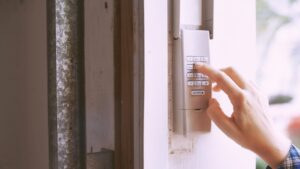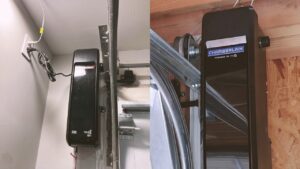Connect With A Garage Expert
Connect with local experts, Compare quotes, Get the best price.
A vast majority of U.S. homeowners, 95% in fact, have a home insurance policy in place to protect against losses and property damage from unforeseen events, such as theft or fires.
But what about your garage door? Does home insurance cover garage door repairs, as well?
Typically, Home insurance policies provide coverage for garage door repairs or replacements, but this is only under specific conditions. Depending upon the specifics of your home insurance policy and the circumstances that led to the garage door damage, your garage door repairs may or may not be covered.
To determine whether your home insurance covers garage door repair, let’s discuss all the circumstances in which it does. We’ll also discuss filing a dispute if your insurance claim is denied.
Does Home Insurance Cover Garage Door Repairs?
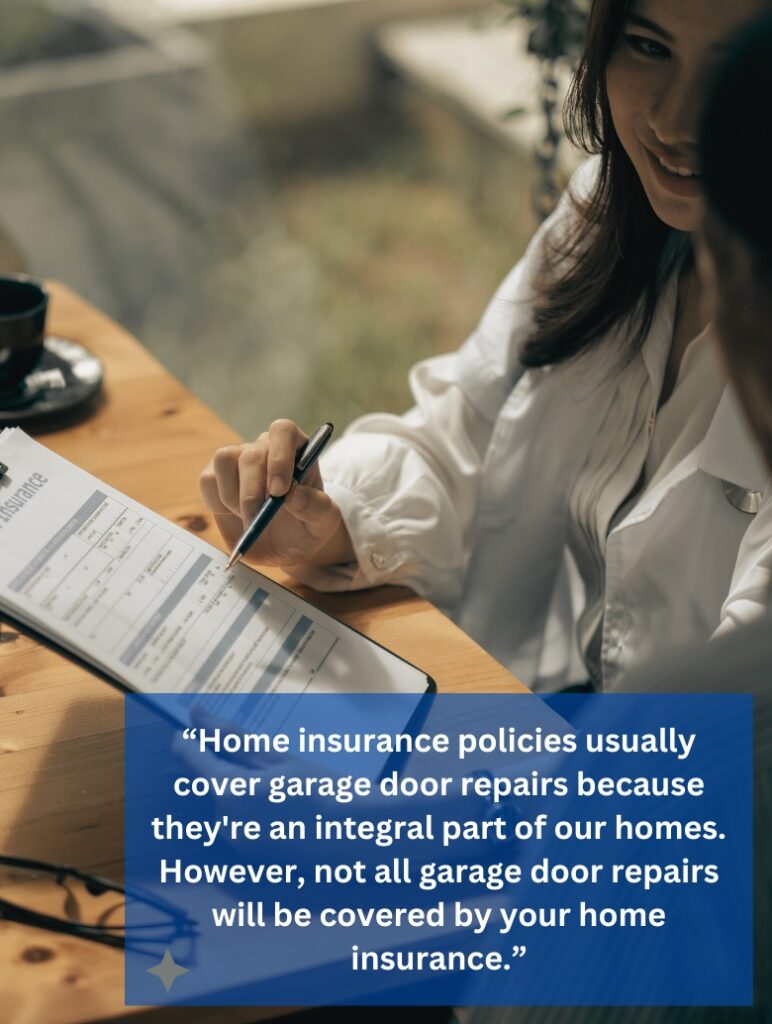
Home insurance policies usually cover garage door repairs because they’re an integral part of our homes. However, not all garage door repairs will be covered by your home insurance. That is because home insurance typically covers damages resulting from unforeseen incidents.
Most home insurance policies cover the cost of repairing garage doors damaged by covered events (e.g., house fire, burglary, etc.). However, your home insurance won’t pay if your garage door is damaged due to wear and tear or a lack of maintenance.
Common Garage Door Damages and Their Causes
To understand whether your home insurance policy covers garage door damage, you must first know the different kinds of damage and what causes them.
Garage door damage can be divided into two main categories:
Accidental Damages
Here are the most common instances of accidental damage to your garage door:
Vehicle-Related Accidents
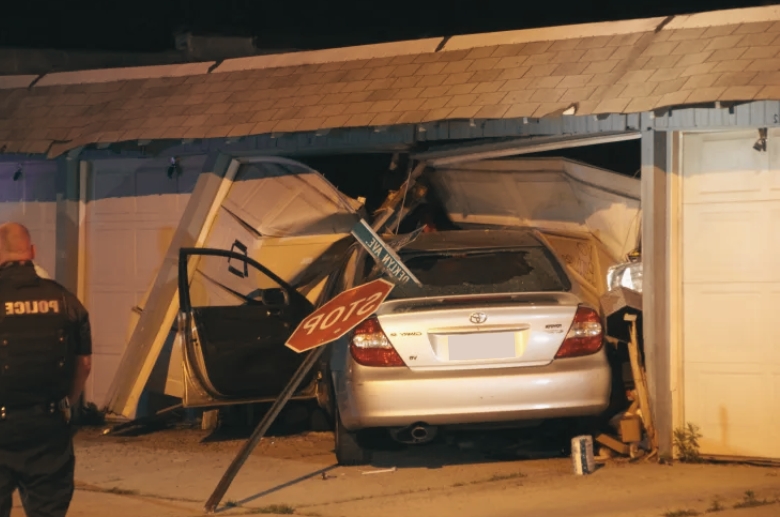
It’s common to hear of cars accidentally backing into garage doors. Simple mistakes like misjudging the distance while reversing or hitting the gas pedal instead of the brake can result in dents or, in more severe cases, distort the door frame.
Such incidents can compromise the door’s appearance and hamper its operation, making it less efficient or unusable. Therefore, it’s best to avoid accidents by being vigilant. The following tips might also help:
- Practice. The more you practice parking your car, carefully and slowly, in your garage door, the more you’ll get used to it and minimize the chances of accidents.
- Pool Noodle Bumper. While practicing, you’ll likely make mistakes that might cause unwanted bumps and dents. Installing pool noodle bumpers where you’re most likely to hit the car will help avoid accidents, keeping your garage door and garage safe.
- Mirror. You can also install a mirror in your garage so that whenever you’re pulling in, you can tell, by looking at the mirror, how far away the car is from the wall.
Weather-Related Damages
Garage doors are external structures that endure the brunt of changing weather, including the heat of the sun, the wrath of storms, and the pouring of rain. Implementing garage water barrier solutions can significantly reduce the risk of water damage, especially during heavy rain.
When hailstorms occur, they pelt the door with ice pellets, leading to visible dents and sometimes cracks. Strong winds, especially during storms, can exert force on the door, potentially causing misalignment or, in extreme cases, tearing the door off its hinges.
During heavy rain, water usually accumulates at the base of garage doors. It then seeps into the foundational structures and causes rust, rot, and weakening of the materials. Such damage not only affects the door’s longevity but can also lead to costly repairs if not addressed promptly.
Connect With A Garage Expert
Connect with local experts, Compare quotes, Get the best price.
Intentional Damages
Here are the most common instances of intentional damage to your garage door:
Vandalism

It’s distressing when personal property is deliberately damaged. Vandalism, such as graffiti, can tarnish the look of a garage door. Moreover, signs of forced entry, theft, or tampering, possibly due to burglary attempts, can compromise the door’s security features. Such damages are superficial; they can impact a homeowner’s sense of security and well-being.
Negligence-Related Damages
While no homeowner intentionally harms their garage door, negligence can have the same effect. A garage door requires periodic maintenance to function optimally. Overlooking small issues, like squeaky hinges or minor dents, can lead to more significant, more expensive problems down the road.
Similarly, attempting DIY repair projects without adequate knowledge can do more harm than good. For instance, incorrectly adjusting a door’s spring tension can result in imbalance or even injuries.
When Does Home Insurance Cover Garage Door Repairs?
Now that you have an idea of the different types of garage door damages, you are in a position to understand which of these are covered by home insurance and which aren’t.
We’ll discuss specific scenarios and explain why they are or aren’t covered by home insurance. But, to make things easier to grasp, we have divided them into three main categories:
Scenarios Typically Covered by Home Insurance
Disasters, such as fires or hurricanes, bring about significant destructive forces. When they hit properties, they can cause extensive damage not just to the main structure of a home but also to its extensions, like garages.
Fortunately for homeowners, many insurance policies provide coverage for vandalism-related damages. This means that instances like graffiti sprawls or break-ins typically fall under the protective umbrella of these policies, offering a sigh of relief in the face of such distressing events.
Many insurance policies typically cover accidental damages, such as when a car unintentionally comes into contact with the garage door.
Gray Areas and Limitations in Coverage
Insurance policies are usually complex and are littered with gray areas and limitations. Let’s discuss the most common ones so that you’re not caught off guard:
Wear & Tear
Insurance policies typically don’t cover natural aging or wear and tear of garage doors. This is because garage doors, like all house components, degrade over time, and this expected degradation is the homeowner’s responsibility.
Homeowners are expected to maintain their properties, ensuring everything is in working order. Insurance is primarily designed to safeguard against unpredictable events, not the regular upkeep or the natural lifespan of household items.
By not covering wear and tear, insurance companies can better manage risks, as this would otherwise lead to a surge in claims, subsequently causing premiums to rise. For an insurance policy to remain affordable and effective, it’s designed to cater to unexpected damages rather than routine aging or wear.
Deductibles
A deductible is the out-of-pocket amount before your insurance kicks in and covers the remaining costs.
The deductible is a threshold; only costs exceeding this amount are shared with or covered by the insurance company. So, the insurance won’t contribute if the repair cost for the garage door is less than the deductible. You’ll have to cover the entire expense yourself.
Vehicle Damage
In situations where your vehicle is the culprit in the damage, it’s worth considering whether shifting from the homeowners’ policy to the auto insurance policy would be more beneficial.
Auto insurance is specifically designed to address vehicle-related damages. Hence, claiming your auto policy (under the auto insurance’s collision coverage) could result in better coverage terms or lower deductibles than your homeowners’ policy, making it a potentially more cost-effective choice for such specific incidents.
Situations Typically Not Covered by Home Insurance
The following are the most common situations that are usually not covered by home insurance:
Negligence
If garage door damages arise due to lack of maintenance or sheer oversight, you’re responsible for the repairs.
Insurance companies design policies to cover unexpected and unforeseeable events, not issues that result from neglect or poor maintenance. If insurance companies covered such damages, it would incentivize neglect, leading to higher claims and, consequently, higher premiums for everyone.
Therefore, to encourage proactive care and keep costs in check, insurers often exclude damages due to negligence.
War or Nuclear Hazards
Acts of war or nuclear hazards—though rare—are typically excluded from home insurance because they present extreme levels of risk and unpredictability. Another reason for exclusion is their potential for vast destruction and financial consequences.
Covering such events would lead to immensely high premiums for policyholders.
Intentional Damage
If you intentionally damage your door, don’t expect the insurance company to come to the rescue. In fact, intentionally damaging your property and then filing a claim is considered insurance fraud.
If your insurance company finds that you intentionally damaged your garage door, it will deny the claim, cancel your policy, and charge you with a criminal offense. You will then have to pay fines or face imprisonment. Therefore, it’s essential to act in good faith when dealing with insurance matters.
Connect With A Garage Expert
Connect with local experts, Compare quotes, Get the best price.
Alternate Financing Options
In situations where insurance doesn’t provide coverage, homeowners can mitigate the garage door repair costs through alternate financing options or repair services offering competitive prices.
Here are some goto options:
- Home Improvement Loans: Many banks and financial institutions offer loans specifically for home repairs and improvements.
- Personal Savings: Setting aside a regular amount for home maintenance can be helpful for unexpected repairs.
- Credit Cards: Some pay for repairs using a credit card, especially if they can use promotional interest rates.
- Contractor Payment Plans: Some repair services offer payment plans, allowing homeowners to pay for repairs over an extended period.
- Discounts and Deals: Regularly checking for discounts or seasonal deals offered by repair services can save costs.
Tips for Filing a Claim for Garage Door Repairs
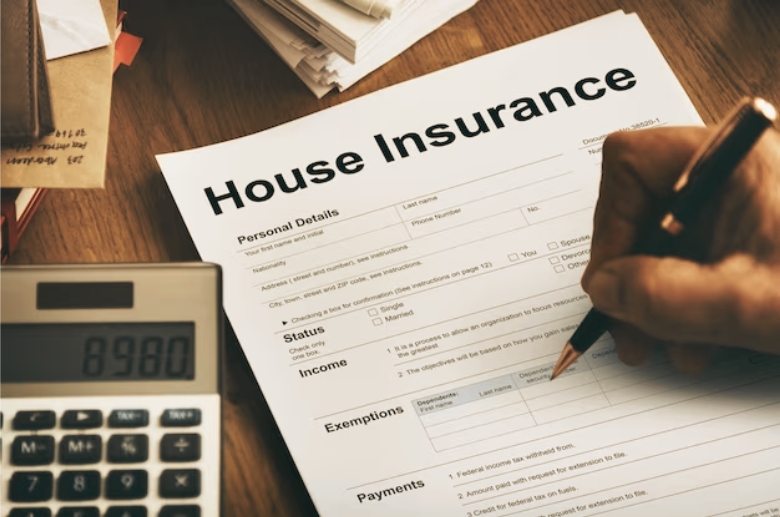
Navigating the intricate insurance claim process can be intimidating. However, with some preparation and insight, this journey can become more manageable.
Let’s discuss the process of filing home insurance claims for garage door repairs and what you need to do to ensure your claims are accepted.
Understanding Policy Details
Before you file an insurance claim, it’s essential to thoroughly read your policy to understand what’s covered and what isn’t. Understanding the different clauses can prevent surprises and setbacks during the claim process.
Insurance policies are not simple documents, and you may need help to grasp their various clauses and legal terminology. In such cases, it’s best to consult an experienced insurance agent to clarify your doubts.
You should establish an open communication with your agent. S/he can break down complex policy terms, clarify doubts, and highlight aspects you might have overlooked. By regularly consulting with them, you ensure that when the time comes, you’re not navigating the claims process blindfolded.
Steps In Initiating an Insurance Claim for Garage Door Repairs
Considering you’ve thoroughly read our insurance policy and consulted with your insurance agent to clarify doubts, here’s how you can file for an insurance claim for your garage door repair:
Step 1: Contact Insurer
Once you detect damage to your garage door, you must contact your insurer promptly. The primary modes of contact include their official website, a dedicated phone helpline, or a mobile app.
If you choose to call, the representative will guide you through the required steps and the information needed.
Step 2: Gather Essential Documentation
Gather the following documents:
- Photos: Photos offer irrefutable proof of the extent and nature of the damage. You should have clear pictures of the damage when filing an insurance claim.
- Repair Estimates: Hire a garage door repair service to assess the damage and quote a complete estimate for the repair. That way, when filing the claims, you know exactly how much you need to cover the cost.
- Police Reports: In situations where the damage results from malicious acts like vandalism or burglary, a police report fortifies your claim and offers a legal perspective.
Step 3: Upload Documentation
Insurers usually provide an online portal or app where you can report the damage and upload necessary documentation, such as photos. Some insurers may require you to fill out a detailed claim form.
Step 4: Keep a Record
Always ensure you document the damage and keep a record of any claim references or numbers given by the insurance company for future communications.
Navigating Denials and Disputes
It’s disheartening when an insurance claim is rejected. To prevent such disappointments, it’s crucial to understand the common reasons behind claim rejections.
From policy exclusions and documentation gaps to coverage lapses, there are multiple reasons disputes and rejections arise. Let’s explore them one by one:
Policy Exclusions
Policy exclusions are the specific damages or situations your policy doesn’t cover. So, if you claim damages done by causes or situations not included in your policy, your claim will be denied.
For example, home insurance policies usually cover damages caused by house fires but don’t pay for any damage done by natural disasters such as earthquakes, floods, or landslides.
Inadequate or Missing Documentation
Insurance companies rely on evidence to process claims. Without enough supporting documents like photos, repair estimates, or police reports, your claim will be denied.
Coverage Lapses
If your policy expires or you don’t pay your premiums, any claims you make during that time might not be covered.
Missing the Timeline
Many insurance policies have set windows within which claims must be reported. Missing these can lead to outright rejections.
How to Dispute a Denial
Don’t worry if your insurance is denied. If you genuinely feel your claim’s rejection was unjust, you have avenues to contest. Here’s how:
- Understand the rationale behind the denial.
- Arm yourself with pertinent evidence and documents supporting your stance.
- Hire legal assistance to ensure a favorable decision.
Constructive conversations, backed by robust evidence, can make a difference. Remember that being well-informed and persistent can reverse the situation in your favor.
Conclusion
Understanding the insurance coverage for garage door repairs can help you save thousands of dollars in repairs. Being proactive, both in maintaining our garage doors and decoding our insurance policies, is the cornerstone of this preparation.
As homeowners, it’s our responsibility to ensure we’re covered, not just on paper but in practice. So, dive into your policy, ask questions from professionals, get accurate quotes from garage door repair service, and remember that knowledge today can prevent costly surprises tomorrow.


